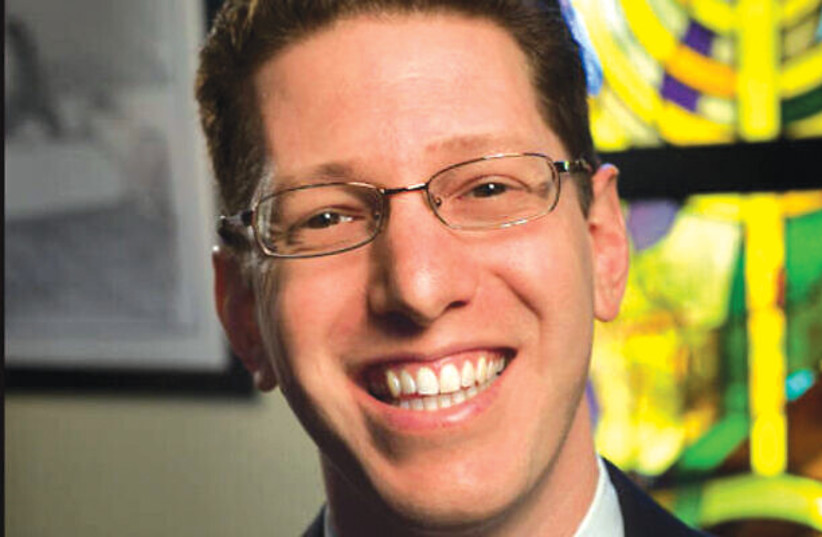One of the four people held hostage at a Texas synagogue shared a message on Tuesday, rebuking antisemitic rhetoric.
On an “MSNBC Reports” broadcast, Congregation Beth Israel hostage Jeffrey Cohen joined Chris Jansing to speak out about his experience during the 11-hour standoff in Colleyville, Texas, and explain how he and the other hostages, two fellow congregants and their rabbi, Charlie Cytron-Walker, managed to escape safely.
Cohen told Jansing he doesn’t “forgive” the attacker.
“He bought into these tropes," he said. "He was not your typical attacker who came in and [said] 'I just want to kill all the Jews.' That was not him. He came to the Jews because he bought into these very dangerous stories that the Jews control the world, and the Jews control the government, and the banks, and the media.
"We as good people and we as patriotic Americans – we need to challenge those things when we hear them," Cohen said, "because these words do have consequences.”
In an initial statement on Saturday, a special agent in charge of the FBI’s Dallas field office said that the hostage-taker was focused on an issue “not specifically related to the Jewish community” – a claim that confused and angered many Jewish leaders.
On Sunday, the FBI walked back its statement, calling the Colleyville hostage crisis “a terrorism-related matter, in which the Jewish community was targeted.”
“I had my phone next to me and I dialed 911 and I turned it over so that the screen was down so he wouldn't see it," Cohen said in describing his experience during the 11-hour ordeal.
"He was calling for us to come to the back. So I exited the row of chairs that I was in and I moved a little bit towards him, but I very strategically positioned myself in the line to get to the exits," he said. "That's one of the things that they teach you in these courses and why they're so important: to always know where your exits are and be prepared to run in that order.”
Cytron-Walker also held a press appearance, telling CBS that the community will definitely be going back to the synagogue.
"We've experienced great difficulty and challenge as a people, and at the same time, we've experienced great resilience," he said. Going back to the synagogue "won't be an easy thing, but it's a really important thing. A synagogue is a house of assembly where we gather as a community and pray together."

He described how the gunman, identified as Malik Faisal Akram, knocked on the synagogue doors, posing as someone looking for shelter.
"When I took him in, I stayed with him," he recounted. "Making him tea was an opportunity to talk to him, and I didn't hear anything suspicious. Some of his story didn't quite add up, but that's not necessarily an uncommon thing."
During prayer, Akram turned on the people present in the synagogue.
"I heard a click, and it could have been anything, but it turned out to be his gun," the rabbi said.
The congregation had gone through courses with the FBI, Colleyville Police Department and Anti-Defamation League (ADL) to learn how to handle emergency situations involving guns.
After close to 11 hours of the standoff, with one hostage released earlier, Cytron-Walker recalled that he saw an opportunity to get himself and the other two men held with him to safety, and he took it.
"The last hour or so of the standoff, he wasn't getting what he wanted. It didn't look good, it didn't sound good and we were terrified," the rabbi said.
"When I saw an opportunity where he wasn't in a good position, I made sure that the two gentlemen who were still with me were ready to go – the exit wasn't too far away. I told them to go, I threw a chair at the gunman and I headed for the door – and all three of us were able to get out without a single shot being fired."
Ariella Marsden contributed to this report.
